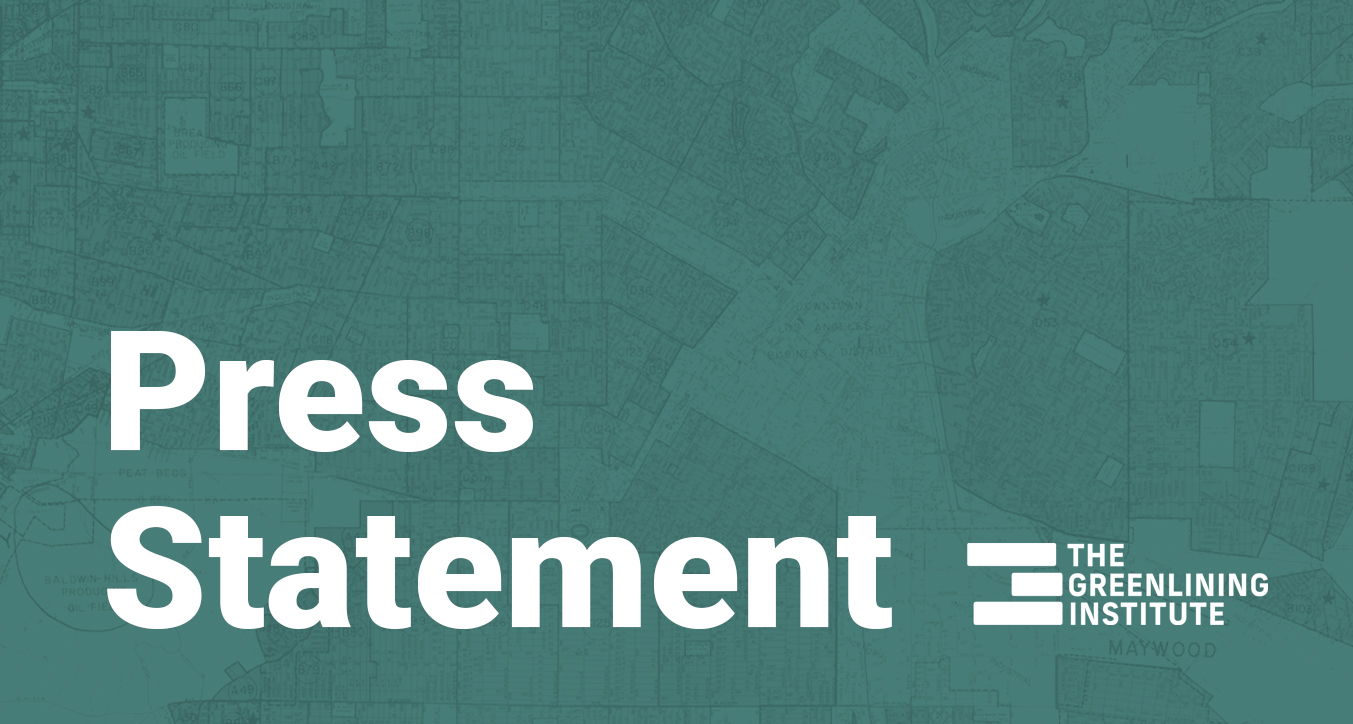Governor Newsom Signs CA Budget Directing Billions to Critical State Programs that Will Benefit Communities of Color

Media Contact
Danielle Bell
SENIOR PROGRAM MANAGER FOR MEDIA RELATIONS
media@greenlining.org danielle.bell@greenlining.org
Greenlining urges legislators to ensure trailer bills include investments in vulnerable communities that have been sidelined while billionaires profited during the pandemic
Contact: Molly Tafoya, Communications Director, The Greenlining Institute 808-256-7064(cell)
(Oakland, CA)–Yesterday, Governor Newsom signed SB 154, the California 2022-2023 Budget Bill, into law. The $300 billion budget outlines how the state will spend the historic $98 billion surplus. While final details of the budget are still being negotiated, The Greenlining Institute is encouraged to see a strong commitment from the Legislature and Governor to reinvest in California families who are struggling in the midst of inflation, critical resource shortages, worsening climate impacts, and lingering effects of the COVID-19 pandemic. Given these challenges and the widening racial wealth gap, we strongly urge the Governor and Legislature to prioritize communities of color in subsequent trailer bill negotiations which will determine the details on where the funds will be spent.
“Legislators must direct the funds from California’s historic budget and surplus into the communities that need it most. This year’s massive surplus is the direct result of extreme wealth concentration that continues to benefit wealthier communities, at the expense of communities of color still recovering from the worst impacts of the pandemic and climate crisis,” said The Greenlining Institute’s President and CEO Debra Gore-Mann. “Billionaires and millionaires in California made historic capital gains last year, while low-income communities of color fell further behind, leading to an even larger racial wealth gap. It is absolutely critical to make equitable investments in communities of color now, to build resiliency to withstand future economic and health crises, and will be most beneficial in the years to come.”
Highlights of the budget include:
- $19.3 Billion Climate and Energy Package. We support the $19.3 billion investment over five years for a total of $21 billion. We look forward to the outcome of the Climate-Energy Budget Plan negotiations, which will detail how those funds will be spent to support Water-Drought Resilience, Wildfire Resilience, Sea Level Rise, Extreme Heat, Biodiversity and Outdoor Access, Energy, Zero-Emission Vehicles, and other climate-related actions. We appreciate seeing continued investments for climate equity programs including Transformative Climate Communities and the Regional Climate Collaboratives, and we look forward to working with the administration and legislature as negotiations continue to increase funding for Community Resilience Centers to fully meet the climate resilience needs of frontline communities. These incremental investments ensure stable funding allocations to build community resilience to climate change in our most vulnerable communities, combat carbon emissions, and bring California one step closer to achieving its climate goals.
- Rebates. We support the agreement made between the Administration and the Legislature, providing direct rebates to nearly 23 million Californians to combat high gas prices and the skyrocketing cost of living. This $17 billion investment will put payments up to $1,050 in the pockets of residents to cover the rising cost of rent and utility bills. This, in addition to a suspension of the state sales tax on diesel, will provide Californians struggling the most with economic relief.
- Utility Debt Relief. We applaud the inclusion of $1.2 billion in the budget for the California Arrearage Payment Program, which will provide greater relief to low income residents facing mounting utility debt.
- $10.8 Billion Transportation Package. The budget includes $10.8 billion in total funding over four years, for a comprehensive transportation infrastructure package, including funding for transit, fleet replacement, active transportation, climate adaptation, and equity programs. This represents the first steps towards fully funding a multi-year clean transportation package in an effort to advance California’s climate goals through advanced infrastructure.
- Health Equity and Racial Justice Fund. We support the inclusion of $75 million annually to fund the Health Equity and Racial Justice Fund, which will support community-based organizations, closing health disparities and addressing the public health impacts of systemic racism. While we are encouraged by this funding, we are disappointed to see that the Governor and Legislature did not allocate funding towards the formation of an Office of Racial Equity, which would have created a holistic equity-first framework within state agencies to combat systemic racism.
The Greenlining Institute looks forward to working with the Governor and Legislature in the coming weeks to ensure the final details of the budget prioritize equity and direct maximum benefits to the communities that need it most. Read more about Greenlining’s legislative priorities here.




